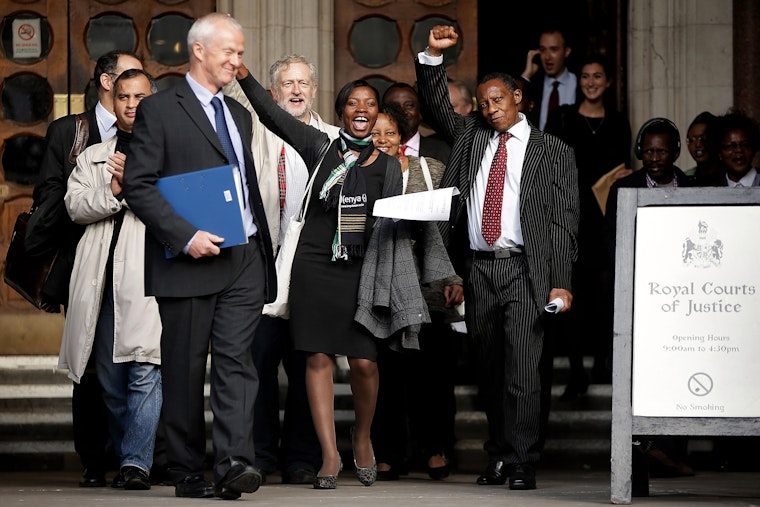Using the Courts to Change the World: Insights from Experience
By Erika Dailey

This year, India's Supreme Court freed millions of gay Indians from the fear of being imprisoned. Meanwhile, in Hong Kong, the Supreme Court there upheld the right of freedom of expression even as the territory is increasingly silenced by China.
And that was just in September.
These cases involved so-called public interest, or strategic litigation cases—cases brought by lawyers seeking a ruling that goes beyond the particulars of a case to benefit the rights of a larger group of people. Such rulings form the bulwark of human rights jurisprudence and practice. Together, they serve as an important counter-weight to the increasingly noisy attacks on human rights institutions and principles.
Now, a new report by the Open Society Justice Initiative, Strategic Litigation Impacts: Insights from Global Experience, offers an unprecedented overview of the diverse ways strategic human rights litigation is practiced around the world. It draws from hundreds of interviews with litigators, judges, victims, and activists in a dozen countries, looking at access to education, the prohibition against torture, and the rights of indigenous peoples to their historic lands. The study offers eight key lessons, addressing both the risks of undertaking strategic litigation, so that they can be minimized in the future, and its innovations and successes, in the hope that they can be adapted elsewhere.
As Insights from Global Experience illustrates, strategic litigation is often the tool that ultimately dislodges entrenched social ills where all else has failed. In South Africa, for example, lawyers took the government to court over its failure to provide decent school conditions for the country’s poorest students, winning a judgment that lead to the replacement of unsafe mud structures with 138 new schools in the Eastern Cape. In India, strategic litigation led to changes that brought 90 percent of truant children in the state of Karnataka back into the classroom in just two years. In the United Kingdom, it compelled the government to award Kenyans tortured by the British colonial administration about $25 million in compensatory damages, and to issue the survivors an apology.
In spite of these victories, the report’s case studies from Argentina, Paraguay, Kenya, and elsewhere illustrate that strategic litigation can be a painfully slow process, and be alienating, expensive, unaccountable, and risky. It can wreak havoc on the people and communities filing suit. Bringing a case compels them to place their fates in the hands of strangers whose legal language and thinking they often do not understand. They can lose the case, ending up worse than when they started. Or they can win, but suffer backlash. Kenyan torture survivors who sued for compensation because they were rendered unable to work were publicly ostracized as dissemblers and money-grubbers.
Most significantly, the study reveals that litigation should be viewed not as a single legal intervention, but as something that must be mutually reinforcing with social movements. The judge presiding in the case to allow pregnant mothers in South Africa ready access to HIV/AIDS drugs may have been influenced by the sea of pregnant mothers in matching t-shirts, chanting for their rights outside the courthouse. At the same time, those pregnant women could not have secured the drugs without recourse to the courts. With such symbiosis, sometimes the threat of litigation alone can bring the desired results.
Ultimately, the study encourages retiring the binary notion of “winning” or “losing” a case. Instead, around the world, effective practitioners see opportunities to add value, or “win,” at various stages of the often lengthy process. When carefully crafted, strategic litigation can ensure that even a negative judgment can provide complainants with a sense of pride and accomplishment that can inspire others to challenge injustice in their own way.
Until November 2021, Erika Dailey was acting division director at the Open Society Justice Initiative.